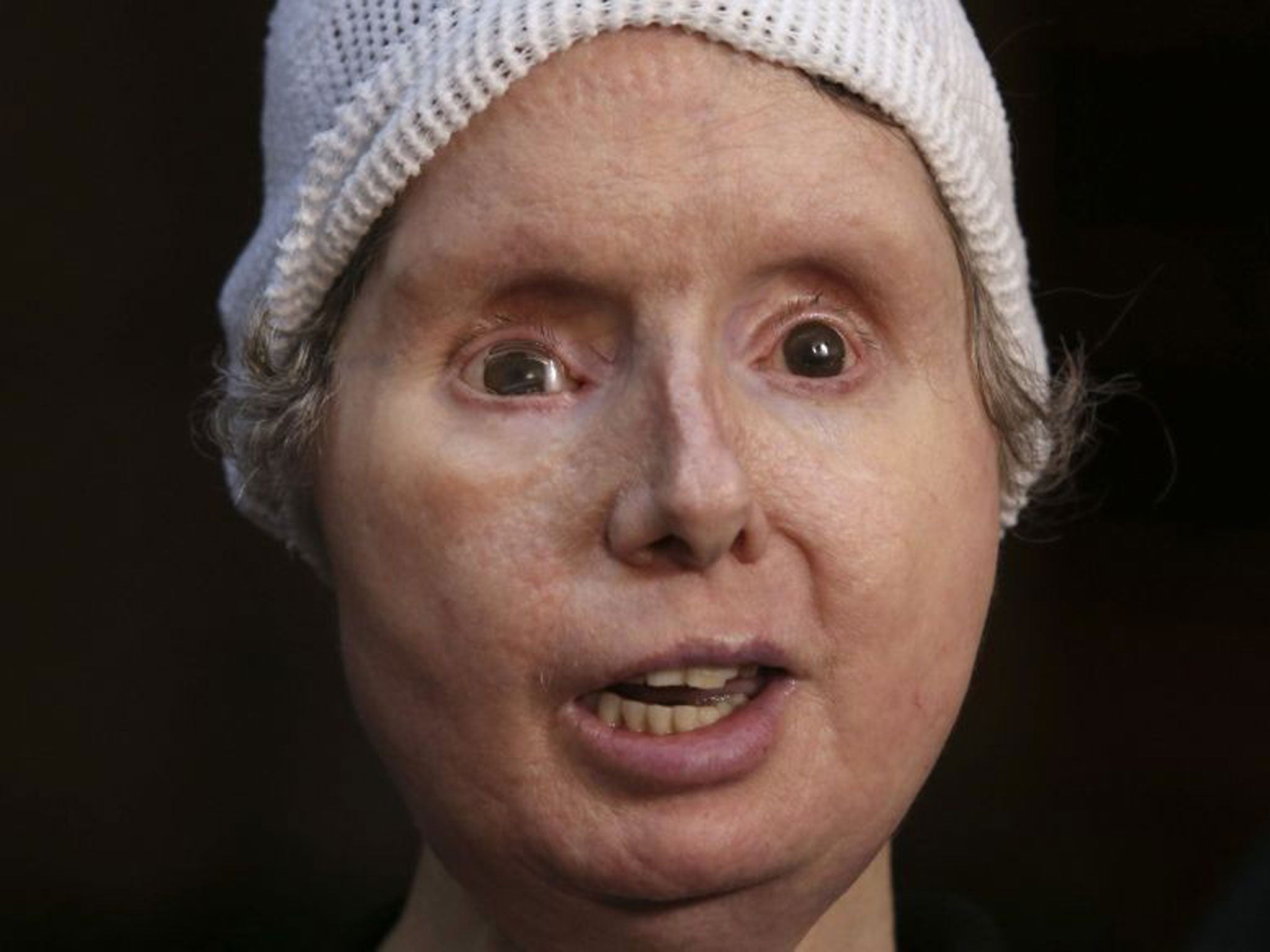Woman disfigured in chimpanzee attack seeks right to sue the state of Connecticut for £90m
Charla Nash said that the state failed to protect her from an 'accident waiting to happen'

Your support helps us to tell the story
From reproductive rights to climate change to Big Tech, The Independent is on the ground when the story is developing. Whether it's investigating the financials of Elon Musk's pro-Trump PAC or producing our latest documentary, 'The A Word', which shines a light on the American women fighting for reproductive rights, we know how important it is to parse out the facts from the messaging.
At such a critical moment in US history, we need reporters on the ground. Your donation allows us to keep sending journalists to speak to both sides of the story.
The Independent is trusted by Americans across the entire political spectrum. And unlike many other quality news outlets, we choose not to lock Americans out of our reporting and analysis with paywalls. We believe quality journalism should be available to everyone, paid for by those who can afford it.
Your support makes all the difference.A woman whose face and hands were ripped off by her friend’s pet chimpanzee has launched a bid to sue the state of Connecticut for $150 million (£90 million) in damages.
Charla Nash, who was blinded in the 2009 attack, made a rare public appearance to ask for permission to pursue the lawsuit against the state.
The 60-year-old, who has undergone a face transplant and many other surgeries, including a failed double-hand transplant, appeared before the Connecticut General Assembly's Judiciary Committee.
With her head wrapped in white protective gauze, Ms Nash said: “I'm hoping you can make a decision based on the fact that the state knew what was happening and failed to protect me."
He legal team said that before the attack, the Connecticut Department of Energy and Environment Protection (DEEP) had described the illegally owned, 200lb (90kg) chimp as a serious threat to public safety and an "accident waiting to happen".
Ms Nash asked lawmakers to pass legislation overruling a June decision by state Claims Commissioner J Paul Vance Jr denying her request to waive Connecticut's sovereign immunity from lawsuits.
"I want the chance to pay my medical bills, and live a comfortable life. But I also want to make sure that what happened to me never happens to anyone else ever again," she said.
Ms Nash now lives in a Boston-area convalescent facility where she is highly dependent on staff.
She was at the Stamford home of her friend and employer, Sandra Herold, when Herold's pet chimp, Travis, attacked her, leaving her blind and disfigured.
The animal was shot dead at the scene by a Stamford police officer.
Ms Nash’s legal team has argued that she has the right for a court to decide whether to find the state negligent, despite Connecticut's sovereign immunity law, which makes it difficult to sue the state in such cases.
But state Attorney General George Jepsen said that allowing Ms Nash to sue the state would "open the floodgates for unlimited lawsuits and liability that would bankrupt the state" and lawmakers should reject her request.
Ms Nash filed a lawsuit against Ms Herold, who died in 2010. In 2012, a settlement was reached in the amount of $4 million, nearly the entire amount of Ms Herold's estate.
Ms Nash’s lawyer, Charles Willinger, said Connecticut is one of only several states in the country that maintains sovereign immunity, and the only one where a single claims commissioner makes the decision.
"This case is about the systemic, institutional gross negligence of the Department of Energy and Environment Protection, from the commissioner all the way down to its police force," he said.
"What we're asking for is to let a court of law decide whether the DEEP was negligent."
Additional reporting by Reuters
Join our commenting forum
Join thought-provoking conversations, follow other Independent readers and see their replies
Comments